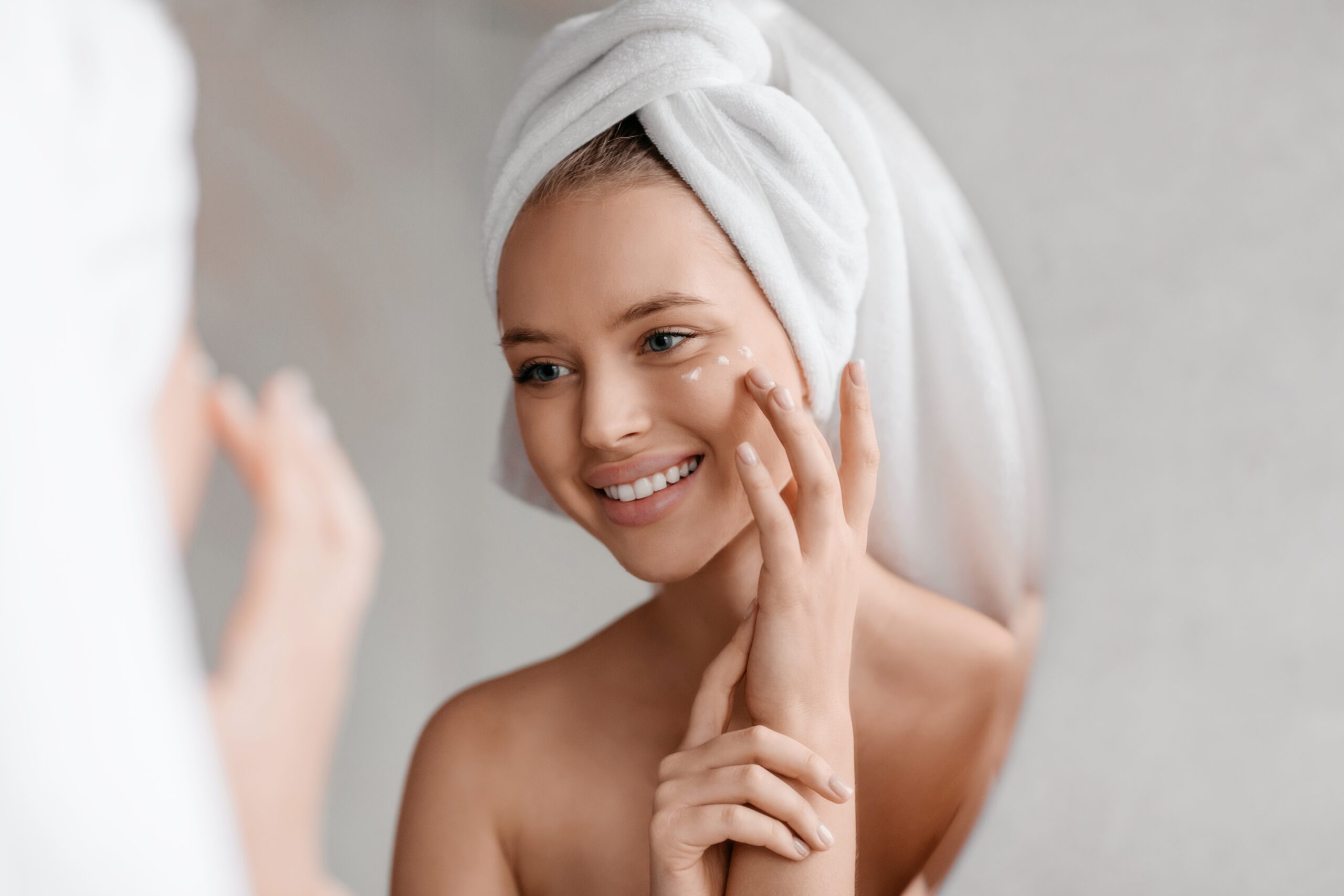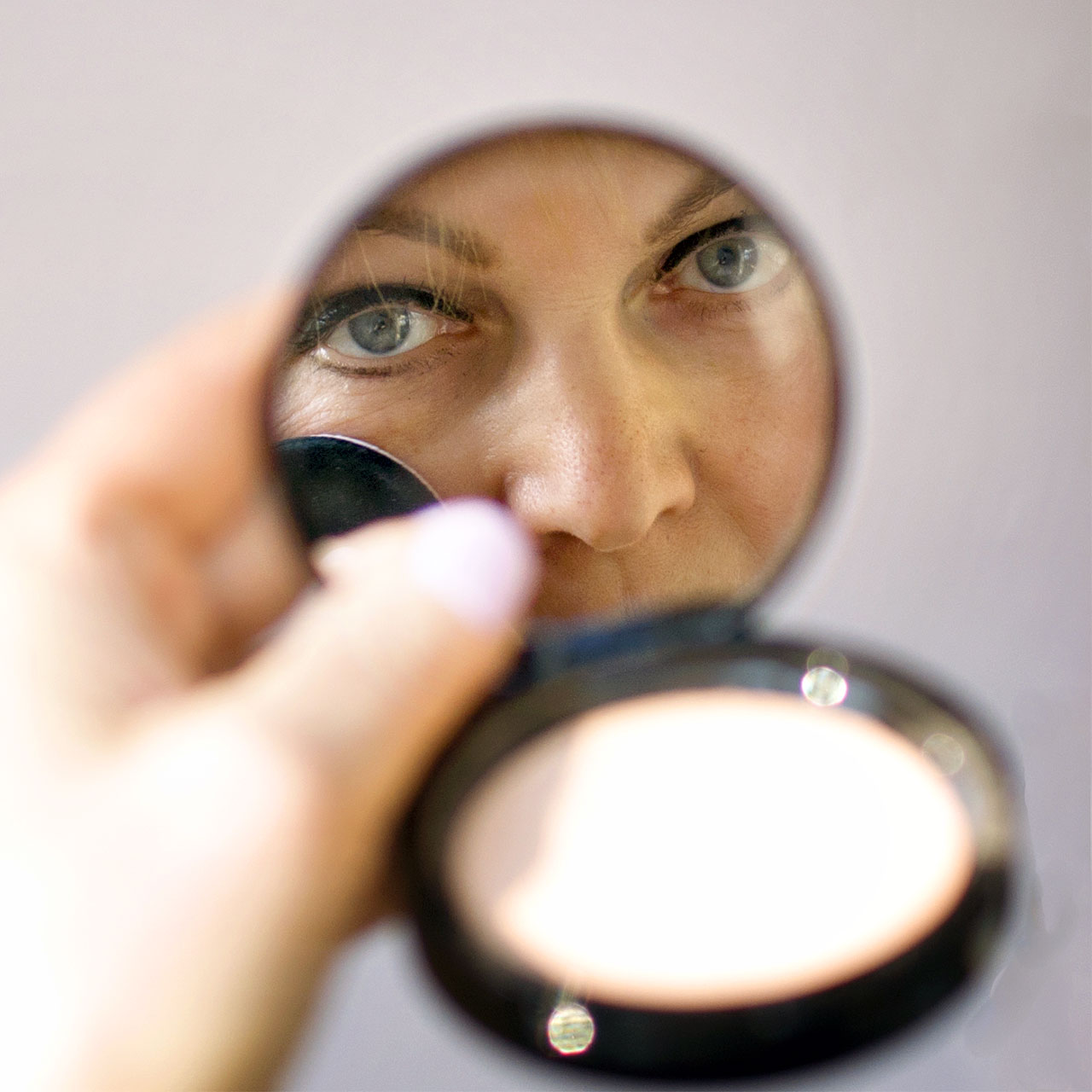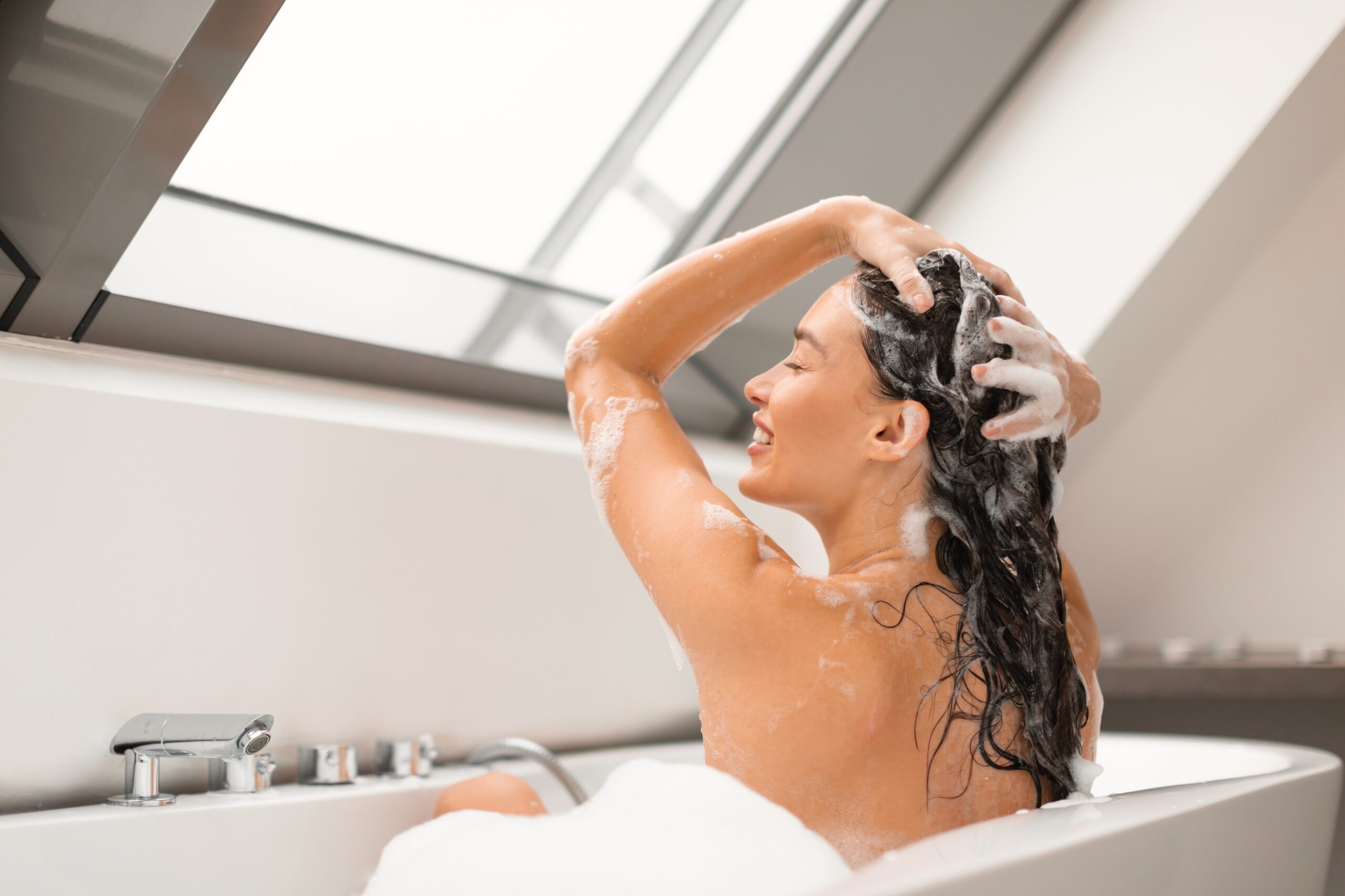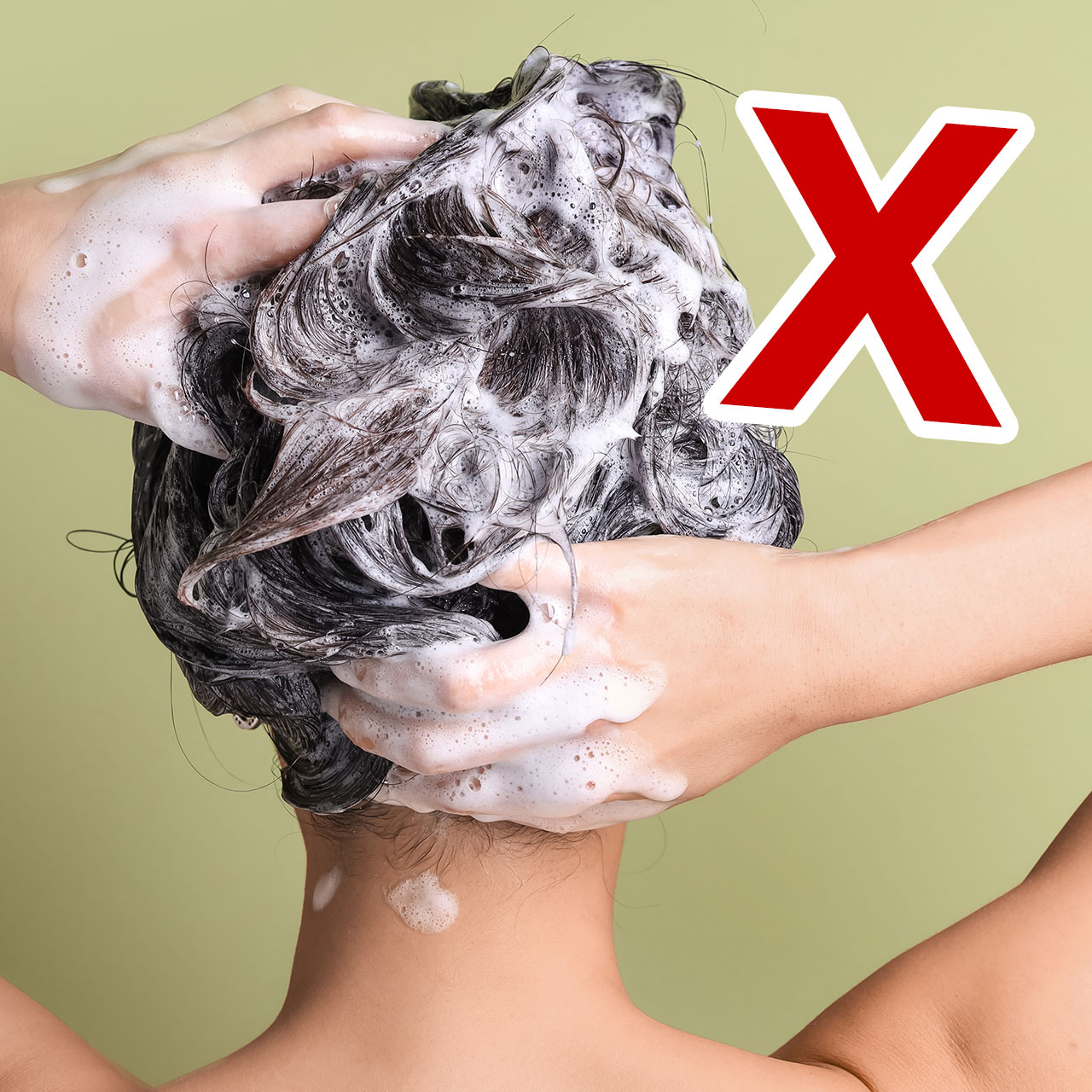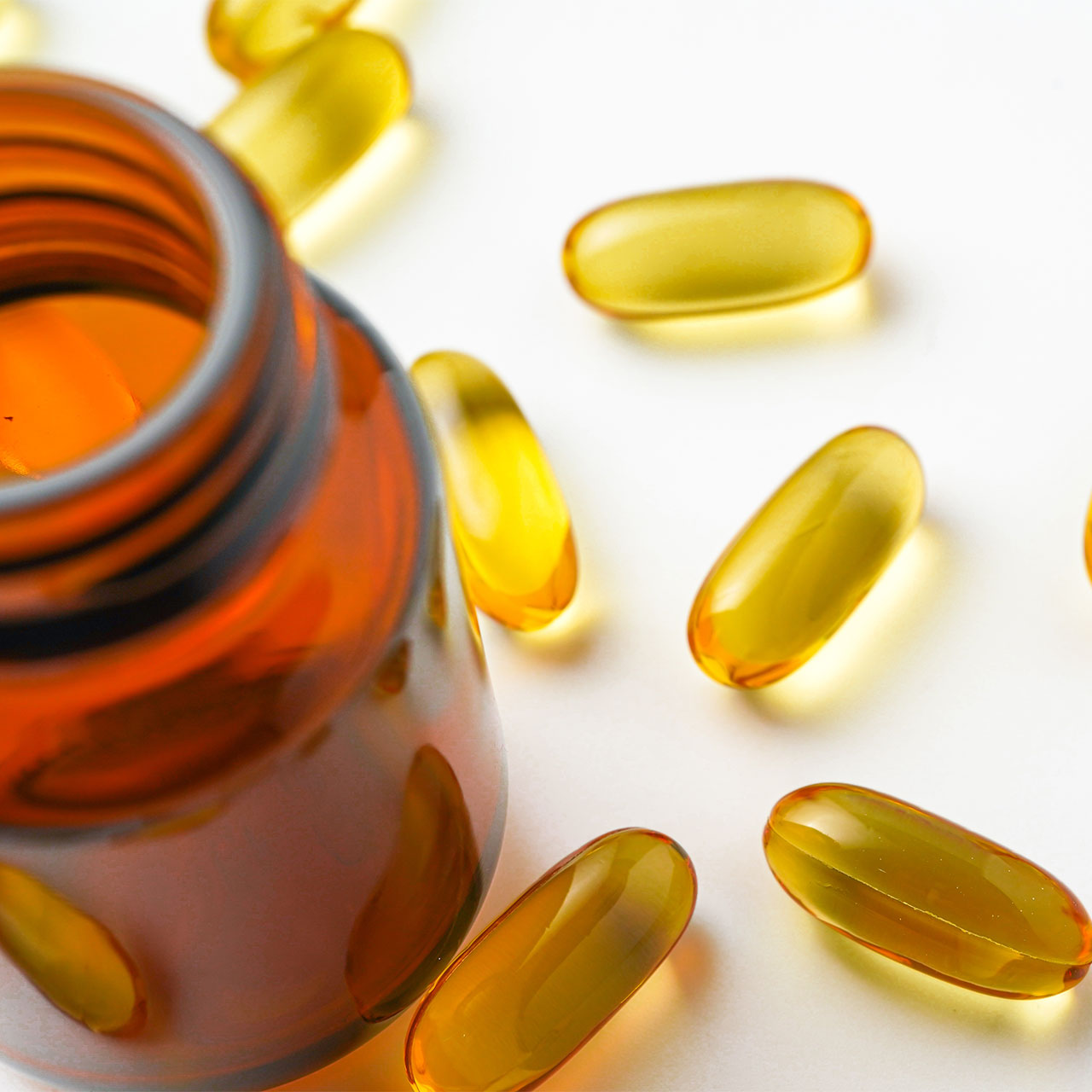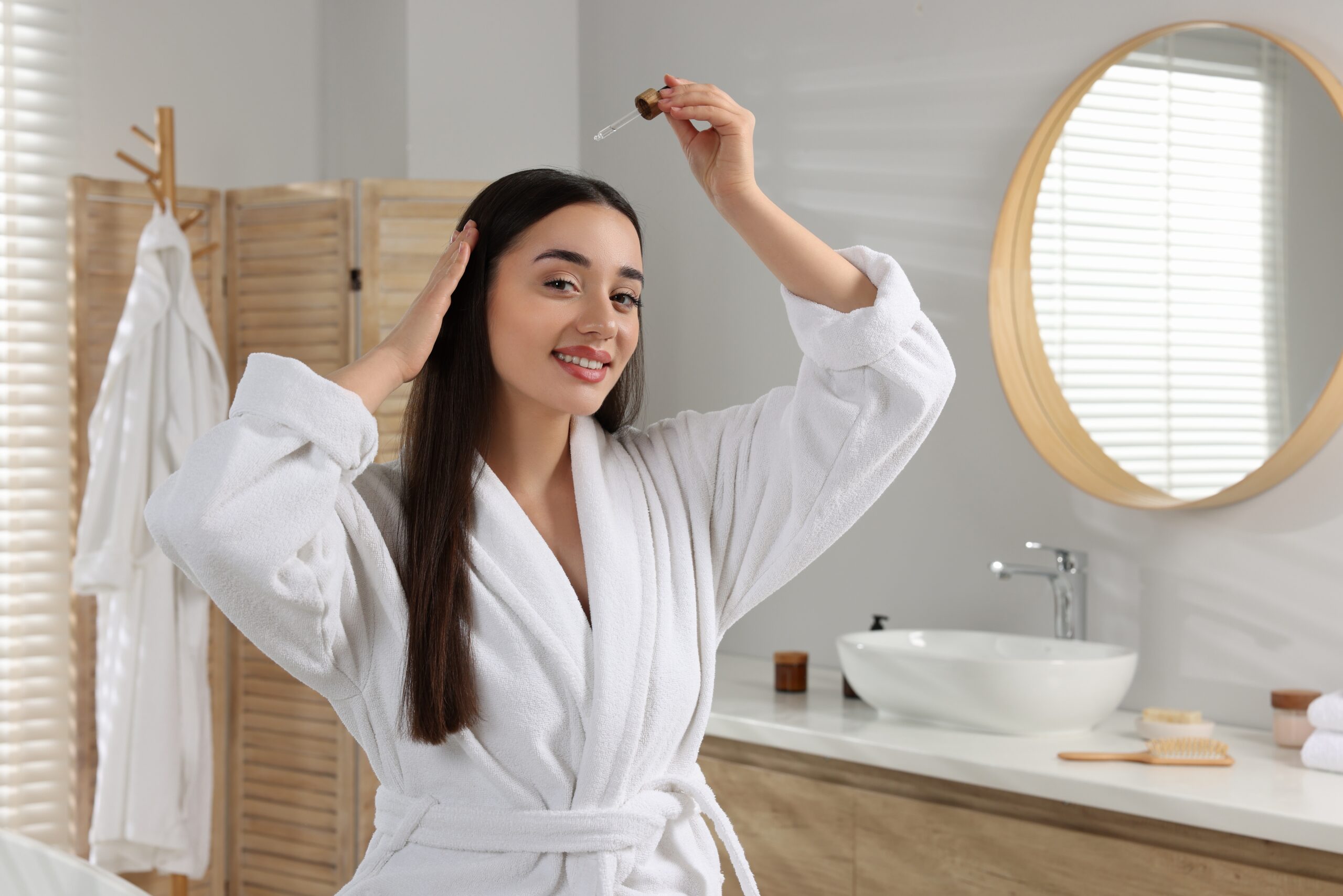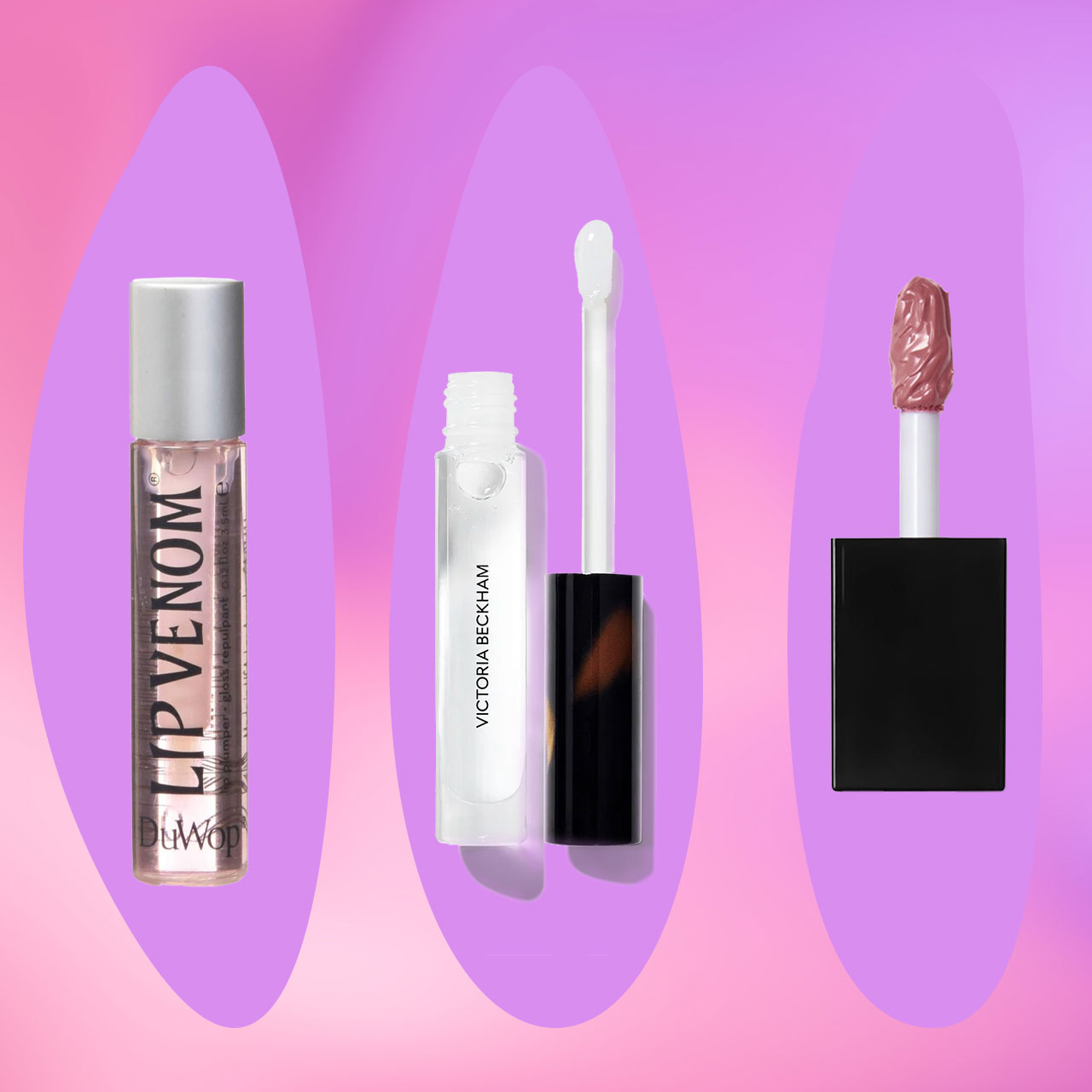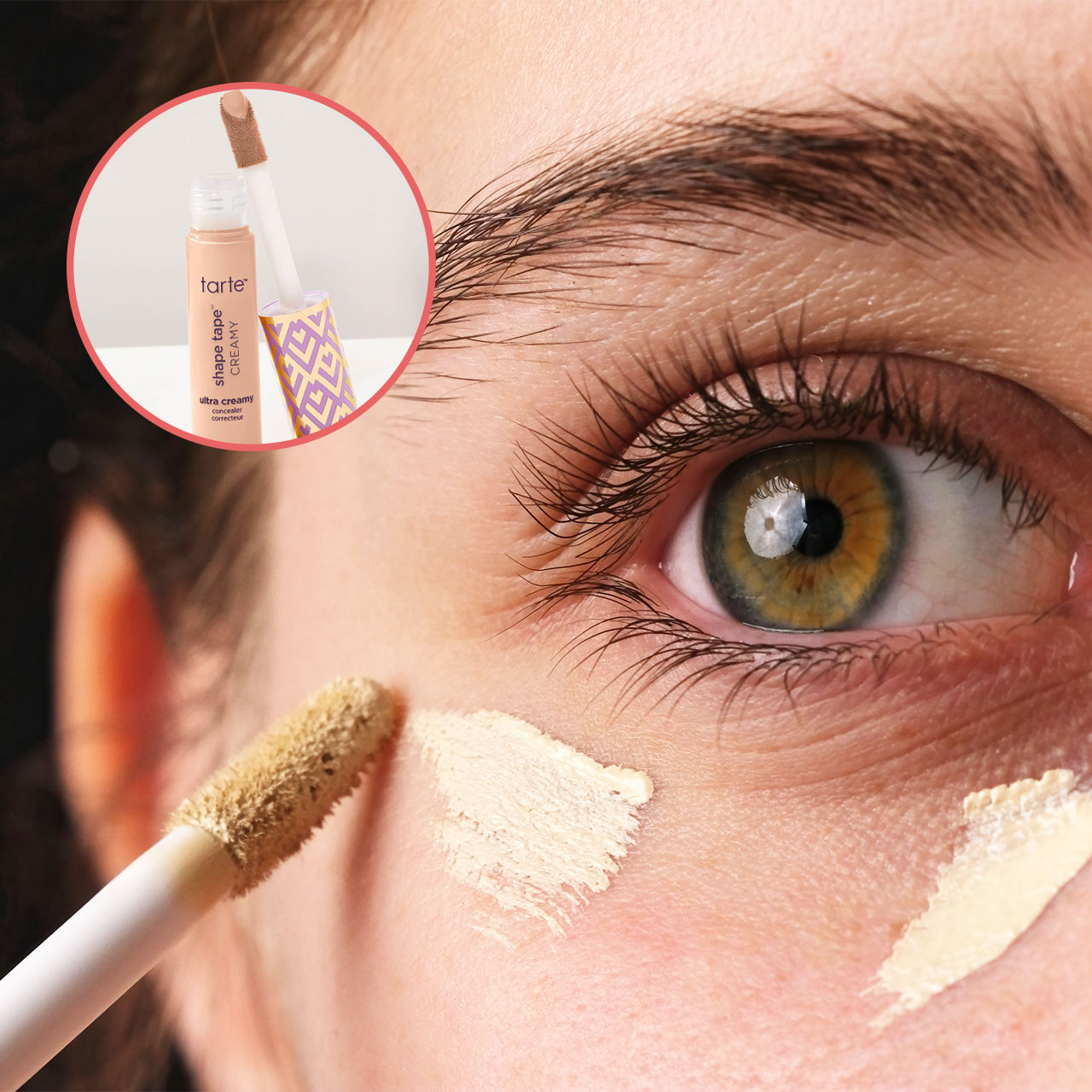The tragic Canadian wildfires have left many U.S. states scrambling to figure out how to navigate a new and scary dilemma: whether or not the air is safe and healthy enough to leave their homes and engage in outdoor activities. Many of us have experienced days where we’ve been told the Air Quality Index is “unhealthy for sensitive groups” or just plain “unhealthy.” The potential health ramifications of poor air quality is the obvious number one concern for most, along with environmental worries. But if a thought or two has ever crossed your mind about how poor air quality might be affecting your skin, you aren’t imagining things.
As the body’s outermost shield and barrier against adverse physical, chemical, and thermal external stimuli and hazardous substances, the skin is constantly in contact with environmental factors and, thus, with air pollutants, explains Valerie Aparovich, certified cosmetologist-aesthetician, biochemist, and science team lead at OnSkin. What’s more: harmful substances can penetrate directly through the skin into the subcutaneous tissue, sweat or sebaceous glands, and hair follicles. So how does this all come back to the poor air quality many of us have been experiencing and what can you do to best protect your skin? Aparovich explains this all in detail.


How Can Poor Air Quality Damage Your Skin?
Skin exposure to increased quantities of ambient air pollution, especially prolonged and repetitive, is proven to have profound negative effects on the skin’s well-being, compromising its healthy functioning, causing multiple alarming skin concerns and disorders, and contributing to overall body toxicity, according to Aparovich.
“Polycyclic aromatic carbohydrates, particulate matter, solar ultraviolet radiation, oxides, volatile organic compounds, heavy metals, and cigarette smoke are the most common air pollutants that drastically affect the skin,” Aparovich says. “The hazardous impact of poor air quality occurs through oxidative stress and degradation of the skin's antioxidant defenses. As pollutants enter the skin, they trigger increased free radical and reactive oxygen species production, which cause cellular damage and induce severe alterations of the normal functions of lipids and proteins in the skin.”

Oxidative stress can leads to issues like premature skin aging and/or it can provoke inflammatory or allergic disorders such as dermatitis, psoriasis, eczema, and acne — so if you’ve been experiencing flare-ups of your skin issues more so than before, the air quality in your area might have something to do with it.
And don’t forget an ever-present physical pollutant: UV light.
Solar ultraviolet radiation is a serious contributor to photoaging, skin discoloration, and hyperpigmentation, Aparovich adds. It can contribute to the reduction in collagen synthesis and degradation of mature dermal collagen, causing wrinkling and sagging. “UVA and UVB rays are associated with immunosuppressive effects on the skin and are proven to induce skin cancer,” she cautions.

How Can You Protect Your Skin Against Pollution?
There are six primary skincare aspects to focus on to support your skin against poor air quality, Aparovich notes: thorough cleansing, regular exfoliation, antioxidant boost, ample moisturizing, promotion of skin barrier functions, and potent sun protection.
Thorough cleansing
“The skin needs thorough and timely cleansing to remove environmental dirt and prevent harmful buildup on its surface and in the pores from compromising its healthy functioning and provoking inflammatory response,” Aparovich says. “Hydrofile oil or cleansing balm can help deep cleanse the skin without disrupting its moisture barrier.”
Regular exfoliation
Regular exfoliation is necessary to deep-cleanse the skin and eliminate the accumulation of dead cells and possible environmental culprits from being stuck there, Aparovich says. But go slowly with this one and take your individual skin type into account — too-frequent exfoliation can disrupt your skin barrier, especially if you have sensitive skin. Aparovich suggests exfoliating 2-3 times a week for oily and combination skin, once in 6-7 days for normal skin, and once in 7-8 days for dry and sensitive skin. “When the air experiences an increase in particulate matter, the exfoliation can be done more frequently,” she says.

Antioxidant boost
Antioxidants combat reactive oxidants helping neutralize free radicals before they cause cellular damage, Aparovich says. “The most efficient cosmetic ingredients with antioxidant properties are vitamins C and E, niacinamide, coenzyme Q10, bakuchiol, and polyphenols.”
Here, Aparovich breaks down what each of these ingredients actually does and how it benefits your skin:
Vitamin C: is a fortifying antioxidant that helps protect the skin cells from free radical damage caused by environmental stressors. It also helps strengthen the skin’s moisture barrier and maintain its hydration levels. Vitamin C is known to stimulate collagen protein synthesis within the skin, being an excellent contributor to its elasticity, resilience, and firmness. Besides, it’s a perfect ingredient for skin brightening, evening out the complexion, and lightening of hyper-pigmented spots.
Tocopherol, or vitamin E: is a potent antioxidant which possesses excellent moisturizing properties helping to plump the skin and strengthen its moisture barrier. It contributes to reducing the appearance of wrinkles, stimulating collagen synthesis, and slowing the manifestation of age-related skin sagging.
Bakuchiol: is a plant-derived analog of retinol. Its plant origin empowers it with antioxidant properties, which help strengthen skin defenses against free radical damage while providing great anti-aging effects. It promotes skin renewal processes, stimulates the production of new structural collagen proteins, smoothes fine lines and wrinkles, and brightens the complexion.
Coenzyme Q10: this powerful antioxidant and a frequent ingredient in face serums, creams, and masks promotes skin moisturizing, helps reduce the visibility of signs of aging, and increases the intensity of collagen production.
Niacinamide, a form of vitamin B3: this is another antioxidant to look for in topical cosmetics. It possesses revitalizing and brightening properties, thus promoting a more evenly toned and glowing complexion, and helps soothe inflammatory response and reduce redness and irritation.

Ample moisturizing
It’s so important to keep your skin hydrated. “Moisturizing helps replenish water content in the skin, enabling it to attract and retain moisture and restore its barrier function, which makes the skin more resistant to pollutant penetration,” Aparovic says.
Aparovic recommends looking for moisturizers that contain hyaluronic acid, glycerin, and amino acids.
Promotion of skin barrier functions
Ingredients like probiotics, ceramides, or peptides can greatly support skin barrier, Aparovic says. “Peptides act as humectants, providing the skin with hydration and moisturizing, improving the skin’s barrier functions, and promoting healing mechanisms within damaged cells,” she says. “Besides, they directly impact collagen synthesis, serving as protein building blocks within our skin, so they are proven to be potent anti-aging agents, increasing skin firmness and elasticity..
Ceramides are lipid molecules crucial for maintaining hydrolipid balance within the skin and ensuring healthy skin barrier functioning. They help eliminate water escape, promote lasting moisturizing, and prevent germs, bacteria, dirt, and other external culprits from entering the body.”
Potent sun protection
Last, but never least, you can have the best skincare regimen in the world, but if you aren’t protecting your skin with SPF, you aren’t protecting your skin — period. “The best overall solution is a broad-spectrum sunscreen with SPF 50 formulated with the combo of physical (mineral) and chemical filters and no comedogenic constituents included,” Aparovic says. “Sunscreen requires a thorough and generous application to work at its full potential and needs to be reapplied every two hours if you stay exposed to UV radiation.”
It isn’t always possible to avoid environmental triggers that affect our skin, but protection and good skin care can help.


